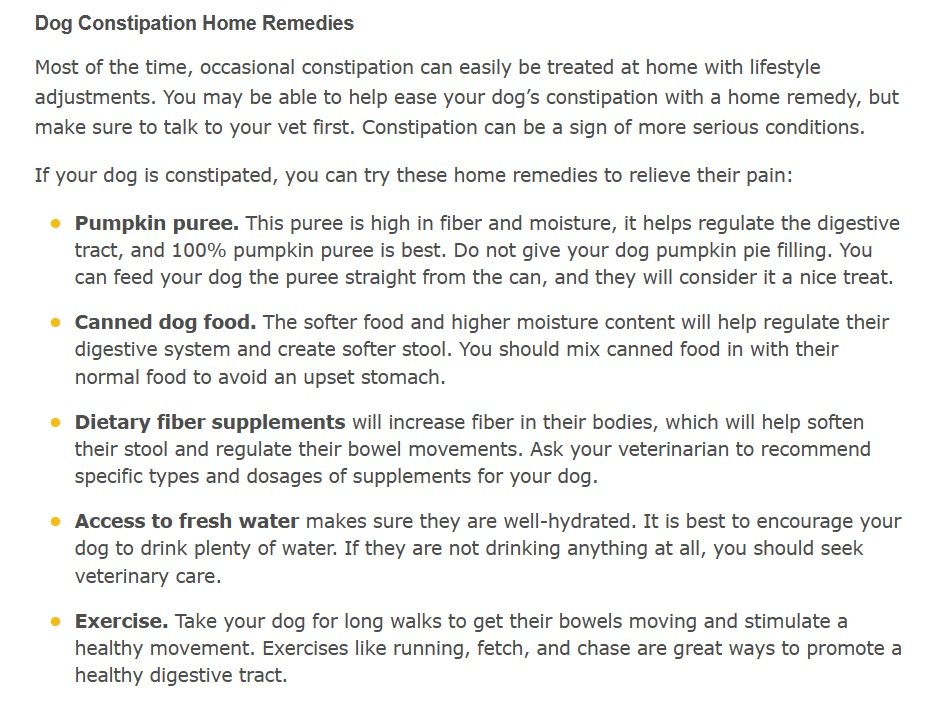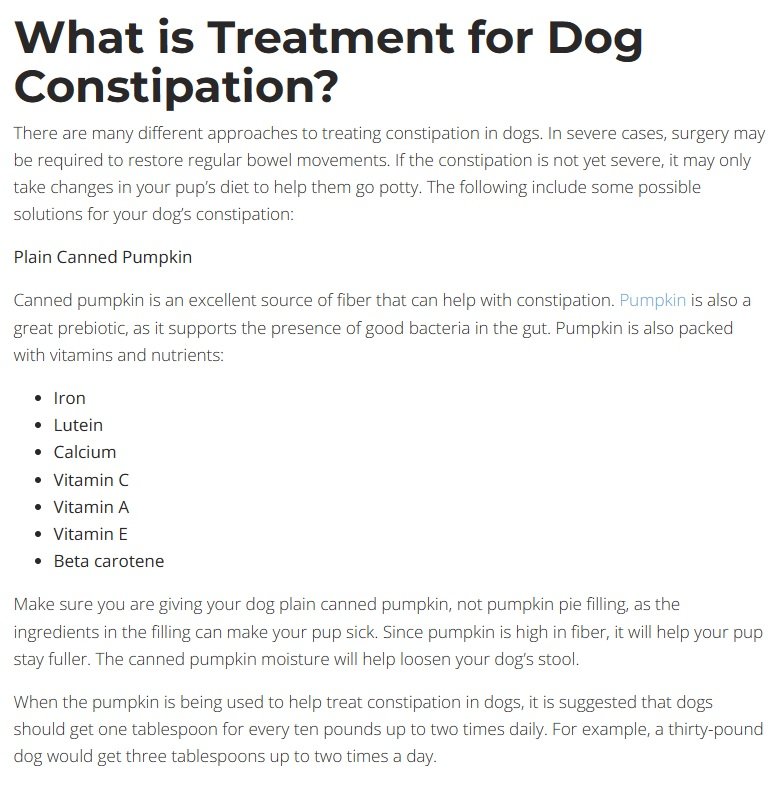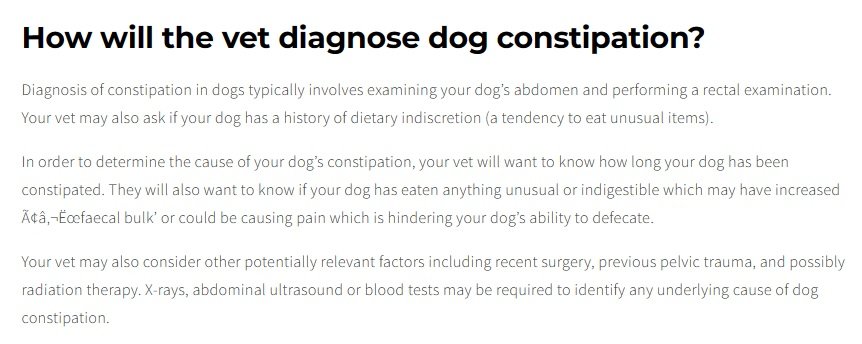Are you worried about your furry friend? Is your dog unable to poop or having trouble doing so? If you’re reading this, chances are, you’ve searched the phrase “What to Do If Dog Can’t Poop.” Well, look no further. This article will provide all the answers to your concerns.
Signs of Constipation in Dogs
Identifying constipation in your dog isn’t always straightforward, but there are several signs that you should be on the lookout for:
- Straining or having difficulty while trying to defecate.
- Producing small, complex, and dry feces.
- Reduced appetite and lethargy.
- Excessive licking or biting at the base of the tail.
Observing these signs in your dog could mean they’re dealing with constipation.
Causes of Dog Constipation
Why is your dog constipated? There are many potential causes, and it’s essential to identify them to figure out what to do if your dog can’t poop.
- Dietary issues: Dogs that don’t eat enough fiber or don’t drink enough water are more prone to constipation.
- Lack of exercise: Regular physical activity helps stimulate bowel movements.
- Age and health conditions: Older dogs and those with underlying health conditions like kidney disease may have a higher risk of constipation.
- Medication side effects: Certain drugs can lead to constipation in dogs.
How to Help a Constipated Dog
Let’s get into the nitty-gritty of how you can help your pup when they’re feeling constipated. Check out these practical solutions that will ease your furry friend’s discomfort:
Dog Constipation Treatment
If your furry friend is struggling with constipation and natural remedies aren’t doing the trick, it’s time to seek professional help. The experts at Lake Land Animal & Clinic suggest the following:
How Will The Vet Diagnose your Dog?
If you suspect your furry friend is suffering from constipation, you may be wondering what steps a veterinarian would take to diagnose the issue. Thankfully, the helpful folks over at vetsnow have provided some insight into this topic.
How to Prevent Dog Constipation
Prevention is always better than cure, and that’s also true when it comes to dog constipation. Here are some steps you can take:
Dietary Changes for Dog Constipation
One of the simplest ways to prevent constipation in dogs is through their diet:
- Increase water intake: Encourage your dog to drink more water by providing fresh water at all times, and consider incorporating wet food into their diet.
- Fiber-rich food: Include more fiber in your dog’s diet. Foods like pumpkin, sweet potatoes, and sure beans can be beneficial. However, introduce these foods slowly to avoid upsetting your dog’s stomach.
Regular Exercise
Regular exercise not only helps your dog stay fit and healthy, but it also promotes better digestion and regular bowel movements. Daily walks, play sessions, and training exercises are all excellent ways to keep your dog active and its digestive system running smoothly.
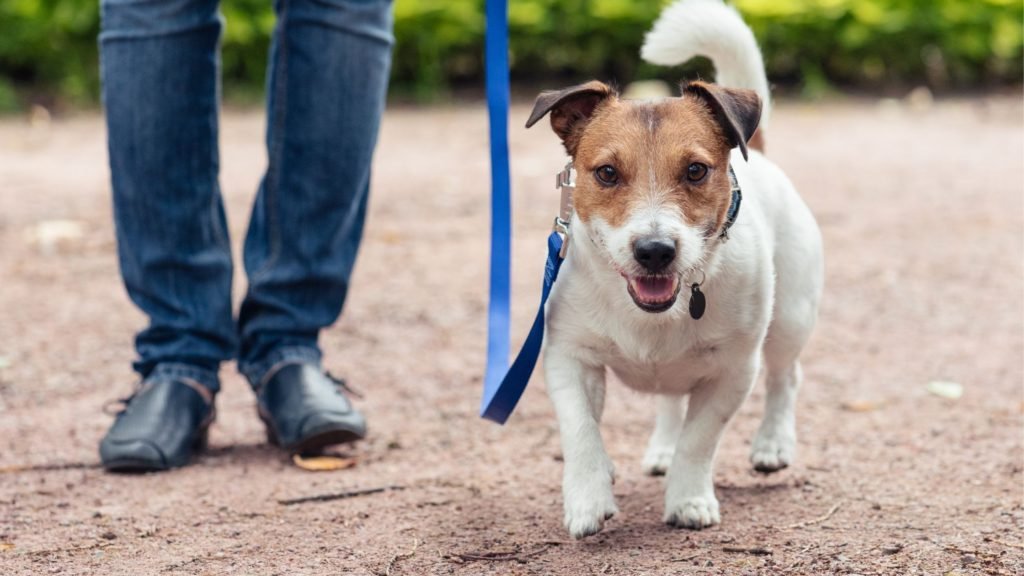
Is My Dog Constipated or Just Not Eating Enough Fiber?
The answer depends on a few factors. If your dog shows signs of straining, has hard stools, and seems uncomfortable, it might be constipated. However, if they pass hard, dry stools but do not show signs of distress or discomfort, they could lack fiber.
Fiber helps add bulk and moisture to your dog’s stool, which makes it easier for them to pass. If your dog isn’t getting enough fiber in their diet, their stools can become dry and hard, which might seem like constipation.
However, every dog is different, and monitoring your pet and their habits is crucial. It’s always best to consult your vet if you need more clarification.
Can Dogs Get Hemorrhoids from Straining?
While hemorrhoids are common in humans, dogs don’t typically suffer from this condition. However, excessive straining due to constipation can lead to other health problems, such as anal gland issues or even rectal prolapse, in severe cases.
How Long Can a Dog Go Without Pooping?
The answer to this question varies, depending on the dog’s diet, activity level, age, and overall health. Generally, most dogs poop at least once per day, but it’s not uncommon for some dogs to go a day or two without a bowel movement. However, if your dog hasn’t pooped in more than two days and shows signs of discomfort or distress, it’s time to consult a vet.
Dog Breeds Sensitive to Constipation
While any dog can experience constipation, some breeds may be more prone to it due to size, diet, or lifestyle. Small breeds or those with a low activity level may be more susceptible. Similarly, dogs with a low-fiber diet are also at a higher risk. It’s always best to consult with your vet if you’re noticing regular bouts of constipation in your dog.
Conclusion
So, what to do if your dog can’t poop? The simple answer is don’t panic but don’t ignore the problem either. Start by making minor adjustments like increasing your dog’s hydration, adding fiber to their diet, and ensuring they’re getting enough exercise. However, if these interventions don’t work or your dog shows signs of distress, consult your vet immediately. They can determine if there’s an underlying condition causing constipation and guide you through the necessary treatment.
FAQs
What can I give my dog if it can’t poop?
While over-the-counter dog laxatives are available, it’s always best to consult your vet before giving your dog any medication. Sometimes, a simple dietary change or increased exercise can solve the problem.
How long can a dog go without pooping before it’s problematic?
Most dogs poop at least once per day, but it’s not unusual for a dog to go a day or two without pooping. If your dog hasn’t pooped in more than two days and is showing signs of discomfort, it’s time to consult a vet.
Can I prevent my dog from getting constipated?
Absolutely! Ensuring your dog has a balanced, fiber-rich diet, gets regular exercise, and drinks plenty of water can significantly reduce the chances of constipation.
Recommended Articles
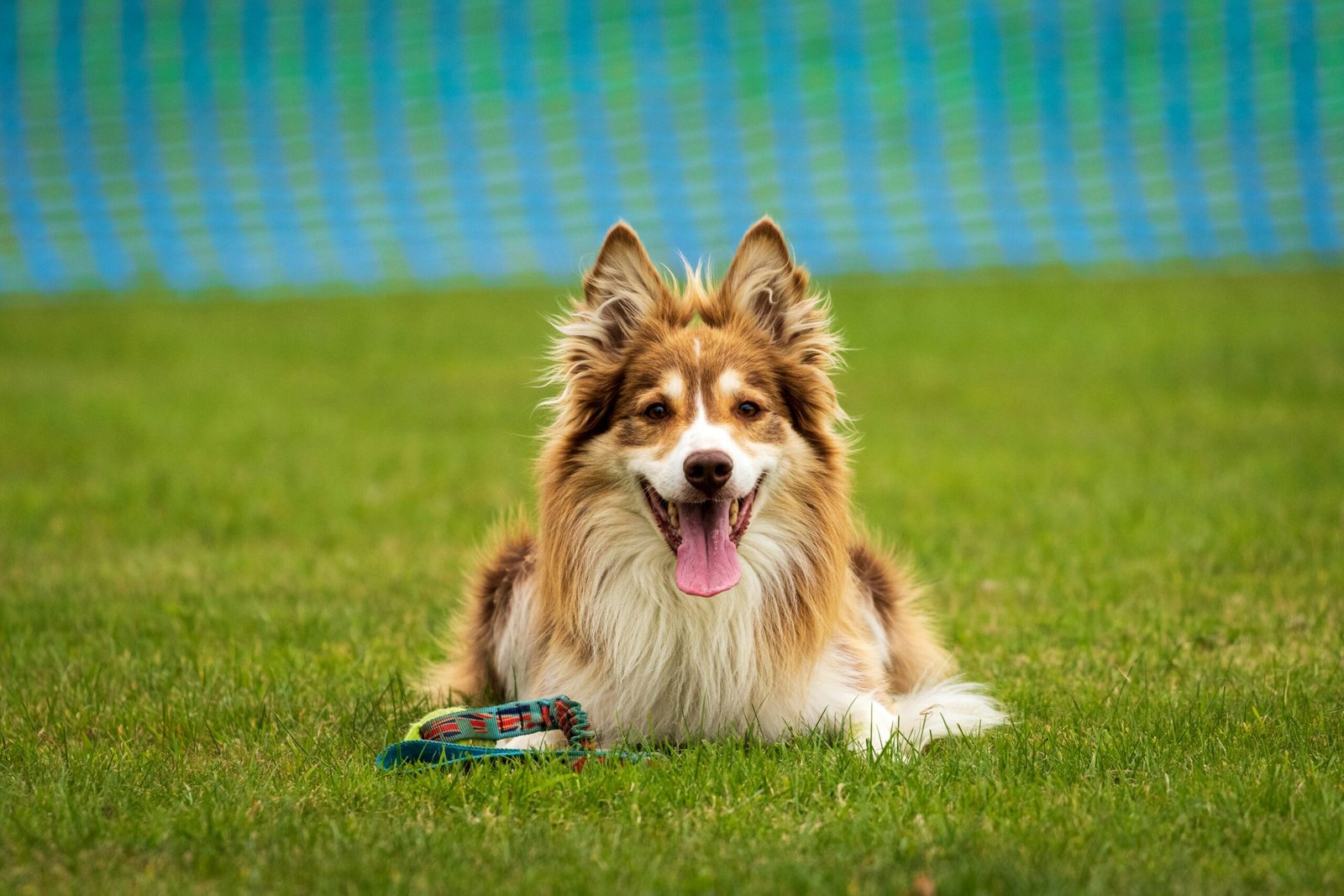
Mastering the Art of Dog Training: How to Train Your Dog to Stop Barking
Introduction to Dog Barking Barking is an

How to Clean Goldendoodle Ears: Preventing Infections
Welcome to our essential guide on how
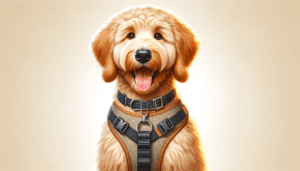
Top Picks: Best Harness for Goldendoodle Revealed!
Welcome to our comprehensive guide on finding
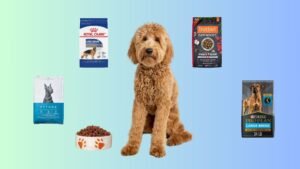
Insider Tips for the Perfect Goldendoodle Diet
Struggling with your Goldendoodle’s diet can be

Goldendoodles Grooming: The Ultimate Toolkit for Perfect Care
Table of Contents Welcome to the world
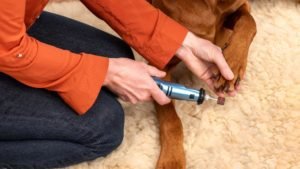
Discover the Perfect Dog Nail Grinder for Your Furry Friend
Finding the ideal dog nail grinder can be daunting


